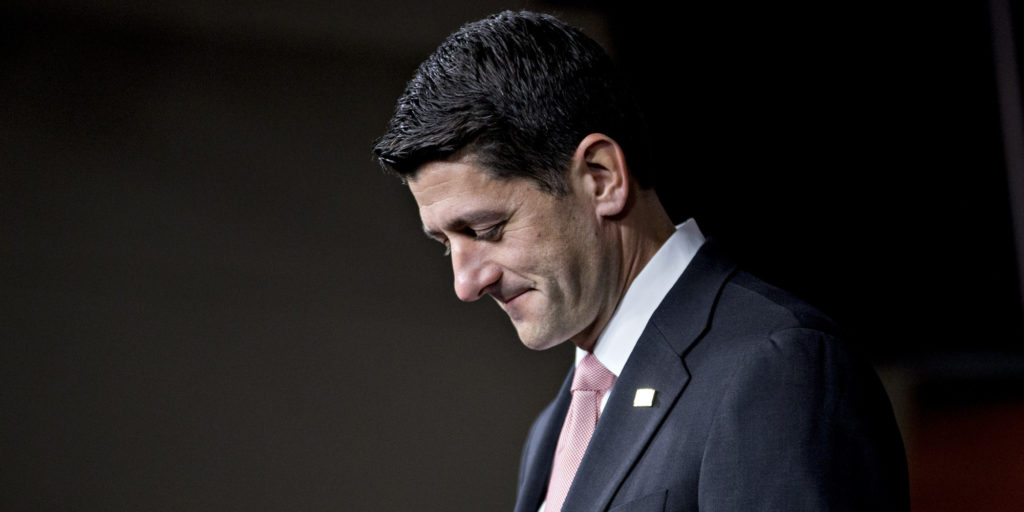
Photographer: Andrew Harrer/Bloomberg via Getty Images
Daedalus, having created the ultimate labyrinth to secure forever the Minotaur for King Minos on the island of Crete, was imprisoned by the king to prevent him from ever revealing the brilliant secrets of the labyrinth to anyone else, on any other land. Daedalus, however, determined to set himself free, and using his profound intellect constructed a perfect set of wings for he and his son, Icarus, to leave the island by the method the king thought impossible – by flight. Wings so beautifully constructed from string, feathers and wax, that Daedalus and his son were soon safely airborne over the sea, and free of the king’s confinement. Icarus, however, enamored with the freedom of flight, ignored his father’s admonition of the fragility of the freedom supported by wings – too close to the foamy sea, and the wings would be water laden; too close to the sun, and the wax would melt , the wings fragment and deconstruct. Surging ever higher, Icarus’s wings deconstructed, and he was dashed into the sea, and drowned. Daedalus’s victory proved etherial, and his great intellectual gifts were not sufficient to overcome human nature.
Paul Ryan had hopes on November 8th, 2016, of escaping the prison of government inaction of the past thirty years, and finally freeing the budget of the United States from the strangulating grip of unreformed entitlements. His two decade personal crusade to use his intellect and character to achieve the politically daunting process of epic, generational governmental action had lived for this day. He had learned at the feet of the energetic and innovative Jack Kemp upon coming to Washington DC, became at 28 years old, a politician himself and won for 9 consecutive elections the 1st District of Wisconsin’s congressional seat. He rose to the head of the Budget Committee,, then the House Ways and Means Committee, succeeded getting the House to pass the Ryan inspired entitlement reform bills only to have them quashed in the Senate, then in 2016 became the radical reform candidate in the Vice Presidential position on Mitt Romney’s ticket, only to fall in defeat to President Obama. But on November 9th, 2016, the now Speaker of the House surveyed a republican house, senate and president, finally in position to achieve real reform as a culmination of a twenty year quest.
So close, and yet, not remotely close enough. The appetite for Ryan type reform with measured, distributed pain to a mature and educated electorate was as etherial as the wings of Icarus, and quickly dashed. The President, who’s personality Ryan found untenable, was of no mind to drive policy that required entitlement reform beyond Obamacare, and fretted about that. Ryan, as Speaker, was poorly constituted to be any kind of an enforcer, and could barely assemble a weakened bill overturning the Affordable Care Act, only to see little direction from the White House and no direction from the Senate, as even weaker versions failed to pass. The ultimate dagger was.aptly, delivered by Senator John McCain, who proved to be the deciding vote preserving Obamacare, after having just completed his re-election to the Senate in a candidacy whose central message was repealing it. Any talking of budgetary restraint to protect against future debt growth disappeared in a tax bill that valued growth over deficit relief, and a budget bill that blasted out of the water any residual gasps of control.
The once rising Young Gun of the House, the Thinker, that was going to secure America’s future with policies designed on smarts and freedom, looked at the landscape and realized no one was listening to his intellectual framing any longer. Only 48 years old, a recent Presidential timber candidate, Vice Presidential nominee, and as Speaker, third in line to the current President, decided to leave the arena. Paul Ryan had designed some beautifully rendered means of escape for the country from an impending future of debt constraint and deterioration, but he proved all too deferential and insufficient in ego to drive the dream to victory.
In 1929, Winston Churchill was asked to abdicate his cabinet position of Chancellor of the Exchequer, and rapidly drifted into the political wilderness, his ideas and style felt to be antithetical to modern progress, and with little respect from the opposition and minimal support from his own party. He was 55 years old, and would not return for a decade to any position of public trust or leadership. But Winston Churchill was always sure of his calling, even when destiny seemed cruel in its place for him. The World Crisis of 1939 broke, and suddenly Churchill’s type of leadership was felt to be the missing ingredient to survival. It may be Ryan has little stomach for the abuse Churchill endured until history again found him, and will want to only spend his time in think tanks with people who are sympathetic to his theories. I, for one, thought Ryan understood his calling, and the recognition that he very well could have been the indispensable man, that Churchill always assumed himself to be.
It appears to not be the case, and Ryan will watch as others avert their eyes to the obvious treacherous waters ahead. It is sad for me to admit, as I thought Paul Ryan was the Right Stuff, that he would be committed enough to the country and its means of governance, that he would let the voters decide whether he was a prophet or a nag. Alas, it appears the arena he was close to dominating proved too big for his moment. Too carefully crafted and averse to the dirty, grungy nature of politics, Ryan flew too close to the sun.
Its nice to reflect back, though, when the fire was in his belly:
